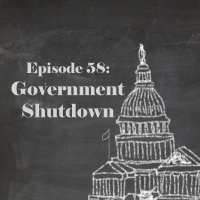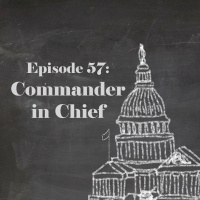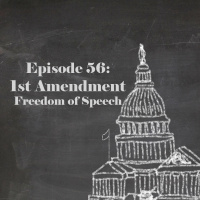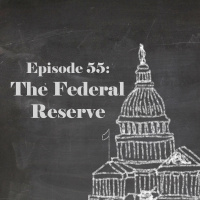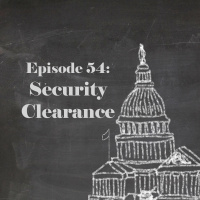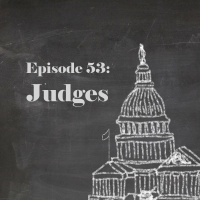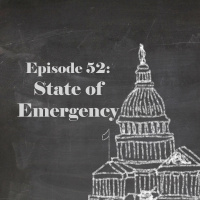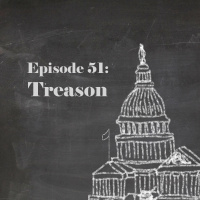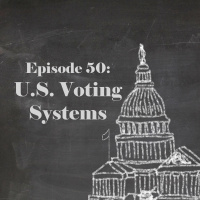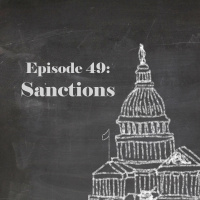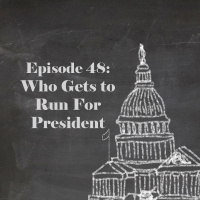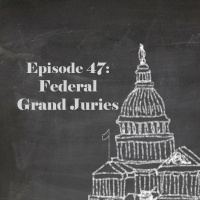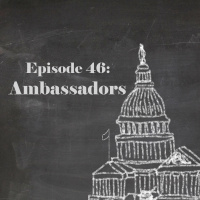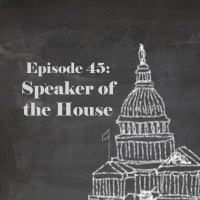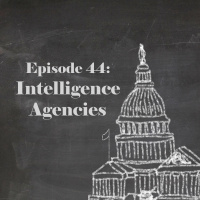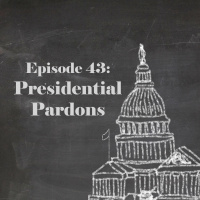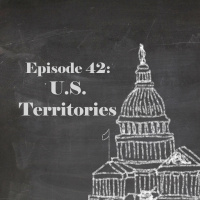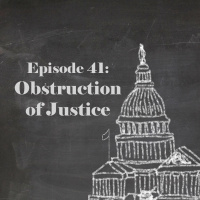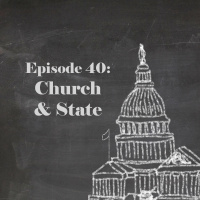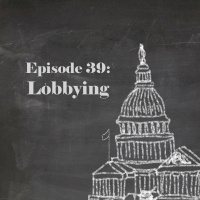Synopsis
Why does the U.S. have an Electoral College? How do congressional investigations work? What does the minority whip actually do? Civics 101 is the podcast refresher course on the basics of how our democracy works.
Episodes
-
Episode 58: Government Shutdown
19/09/2017 Duration: 13minOn this episode: What actually shuts down during a government shutdown? Do federal workers still get paid? Who decides what government jobs are essential, and non-essential? What can past government shutdowns tell us about the process? Our guest is Charles Tiefer, law professor at the University of Baltimore.
-
Episode 57: Commander in Chief
15/09/2017 Duration: 14minOn this episode: What does it mean that the President is 'Commander-in-Chief'? What powers does the Constitution grant him? What is the difference between the President's power to conduct war, versus the power of Congress to declare it? Practically speaking, can the President order specific combat missions? How have the President's war powers changed since Vietnam and 9/11? Our guest is Michael Paulsen, constitutional scholar and professor of law at the University of St. Thomas.
-
Episode 56: The 1st Amendment - Freedom of Speech
12/09/2017 Duration: 16minOn today's lesson: We take a broader look at the First Amendment, and then zero in on one of the freedoms it covers: the freedom of speech. We'll cover the text of the First Amendment in the U.S. Constitution, and why the framers chose to include so many important freedoms in one sentence. Also, what constitutes 'speech', and how landmark court cases have outlined the importance of context when determining the meaning of our first amendment rights. Our guest is Lata Nott, Executive Director of the Newseum Institute's First Amendment Center.
-
Episode 55: The Federal Reserve
08/09/2017 Duration: 16minOn today's lesson: What is the Federal Reserve? How important is it? What tools does the Fed use to manage the U.S economy, and why is it organized differently than other government agencies? Our guest is Louise Sheiner, policy director at the Brookings Institution's Hutchins Center on Fiscal and Monetary Policy.
-
Episode 54: Security Clearance
05/09/2017 Duration: 16minOn today's lesson: How do people receive security clearance to see secret, or top secret government material? Who grants it, and how is that clearance revoked in cases of misuse? Do people with security clearance have unfettered access to secret material, or is classified information compartmentalized? Also, does the President have any restrictions to his security clearance? Today's guest is Juliette Kayyem, national security analyst for CNN and Boston Public Radio, and host of the podcast The Scif.
-
Episode 53: Judges
01/09/2017 Duration: 18minOn today's lesson: What does it take to become a judge? What does the job entail? Also, what are the schools of thought we hear about so much about in relation to Supreme Court justices: textualism, originalism, and the phrase, "the living constitution"? Our guide is Behzad Mirhashem, from the University of New Hampshire School of Law.
-
Episode 52: State of Emergency
29/08/2017 Duration: 16minNatural disasters, civil unrest, widespread epidemics - these are just some of the unpredictable events that can trigger a President or Governor to declare a special "state of emergency". But what exactly does that mean? Is it symbolic, or logistical? What emergency powers does this special designation authorize? Our guide this week is Kim Lane Scheppele, author of Law in a Time of Emergency.
-
Episode 51: Treason
25/08/2017 Duration: 16minFor a serious crime, accusations of treason get thrown around a lot - which is why the framers were very specific about what does and doesn't make you an actual traitor. In fact, treason is the only crime explicitly defined in the U.S. Constitution. In this episode, University of California Davis law professor Carlton Larson explains the difference between treason and espionage, and why most of those guilty of treason will never be convicted.
-
Episode 50: Voting Systems
22/08/2017 Duration: 10minWhen you cast your ballot in a national election, you’re participating in a specific kind of voting system. But what about the other methods of choosing your candidate and counting your vote? There are systems that approach voting in very different ways… and ways of determining how fair a voting system really is. Producer Hannah McCarthy and Eric Maskin, Harvard Professor of Economics and Nobel Memorial Prize winner, guide us through majorities, pluralities and the ways we make our choices.
-
Episode 49: Sanctions
18/08/2017 Duration: 14minFrom full trade embargoes to targeted sanctions and frozen assets, sanctions are an increasingly commonplace tool used in U.S. foreign policy. Today, a primer on the purpose and design of economic sanctions, from one of the people who helped develop Obama-era sanctions against Russia: Sean Kane, Counsel at Hughes Hubbard and Reed's International Trade Practice.
-
Episode 48: Who Gets To Run For President
15/08/2017 Duration: 13minForty-four people have become President of The United States - all men, and with one exception, all white. Despite that historic profile, and a clause in the constitution, the qualification about who can become President remain fuzzy. Here to explain the formal and informal rules that govern who is allowed to become Commander-in-Chief is Brady Carlson, author of Dead Presidents.
-
Episode 47: Federal Grand Juries
11/08/2017 Duration: 13minThe right to a Federal grand jury comes from the Fifth Amendment to the Constitution, but what exactly are they, how are jurors chosen and how do they work? We asked Erin Corcoran to join us again to explain this judicial tool. Erin is a former Senate Committee staffer, law professor, and legal consultant.Read the transcript at this link.
-
Episode 46: Ambassadors
08/08/2017 Duration: 16minWhat happens at a U.S. Embassy? What does it take to become a diplomat? And how do you celebrate the 4th of July in Africa? In this episode, we get a taste of how ambassadors represent U.S. interests in foreign countries. Our guest is Johnnie Carson, a former U.S. Ambassador to Uganda, Zimbabwe, and Kenya.
-
Episode 45: Speaker of the House
04/08/2017 Duration: 17minThe Speaker of the House is second in the presidential line of succession, after the Vice President and ahead of the President pro tempore of the Senate. The person elected to the Speakership wields a fair amount of power not only in the House of Representatives, but also within their party, but what exactly does a Speaker do? And how does someone end up in that position? 53 men and one woman have held the Speaker’s gavel, and each individual has put their unique mark on Congressional history. We chatted with Matt Wasniewski, Historian of the United States House of Representatives to learn more.
-
Episode 44: Intelligence Agencies
01/08/2017 Duration: 18minYou've heard of the CIA and NSA... how about the NGA? That's the National Geospatial-Intelligence Agency by the way (formerly known as the National Imagery and Mapping Agency) which is just one of the more than a dozen intelligence agencies operating in the United States. So how do all these agencies coordinate? Who is in charge? Today, an intelligent lesson guided by Amy Zegart, author and co-director of the Center for International Security and Cooperation at Stanford University.
-
Episode 43: Presidential Pardons
28/07/2017 Duration: 15minArticle II of the U.S. Constitution gives the President the power to grant pardons. Does this power have limits? Or did the founders give the the President an untouchable "get-out-of-jail-free" card? Does Congress get a say? And what purpose to pardons serve anyway? Today's guest lecturer is Andrew Rudalevige, Thomas Brackett Reed Professor of Goverment at Bowdoin College.
-
Episode 42: U.S. Territories
25/07/2017 Duration: 16minGuam, Puerto Rico, American Samoa, the U.S. Virgin Islands, and the Northern Mariana Islands are all U.S. territories, but what does that mean? Is there political representation? What is the status of its citizens with regard to the Constitution and U.S. law? And what does the lack of full statehood status allow, or limit? Author Doug Mack leads today's lesson. Email us your U.S. territories mnemonic device!civics101@nhpr.org
-
Episode 41: Obstruction of Justice
21/07/2017 Duration: 15min“Obstruction of Justice” has been a term swirling around in the headlines lately, but what does the charge actually mean? And how do you prove it? We’re speaking with Brianne Gorod, Chief Counsel for the Constitutional Accountability Center to learn about the many different ways one can be accused of obstructing justice – from witness tampering and retaliation to simple contempt and the many options in-between.
-
Episode 40: Church and State
18/07/2017 Duration: 18minThe separation of church and state is widely considered to be a building block of American democracy, but what did the founders really have in mind when they wrote "Congress shall make no law respecting an establishment of religion, or prohibiting the free exercise thereof” into the first amendment? And what's the deal with "one nation under God," and the whole swearing on the bible thing? Backstory's Ed Ayers and Brian Balogh lead today's civics lesson.www.civics101podcast.org
-
Episode 39: Lobbying
14/07/2017 Duration: 15minWhen discussing the political power of special interest groups, you can't help but talk about lobbying. But what does a lobbyist actually do? We know they hand over checks (lots of them) but how do they spend the rest of their time? What separates legal lobbying from bribery? And how is the food at all those Washington D.C. fundraising breakfasts anyway? Jimmy Williams, former lobbyist and current host of Decode D.C. spills the beans.

